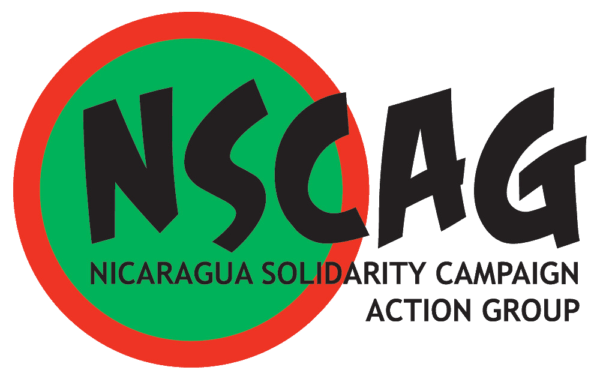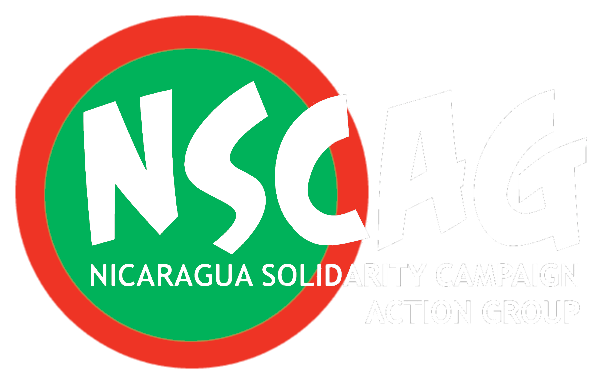Nicaragua Solidarity Campaign Action Group
29 February 2024
Climate Justice = holistic transformation not tinkering around the edges
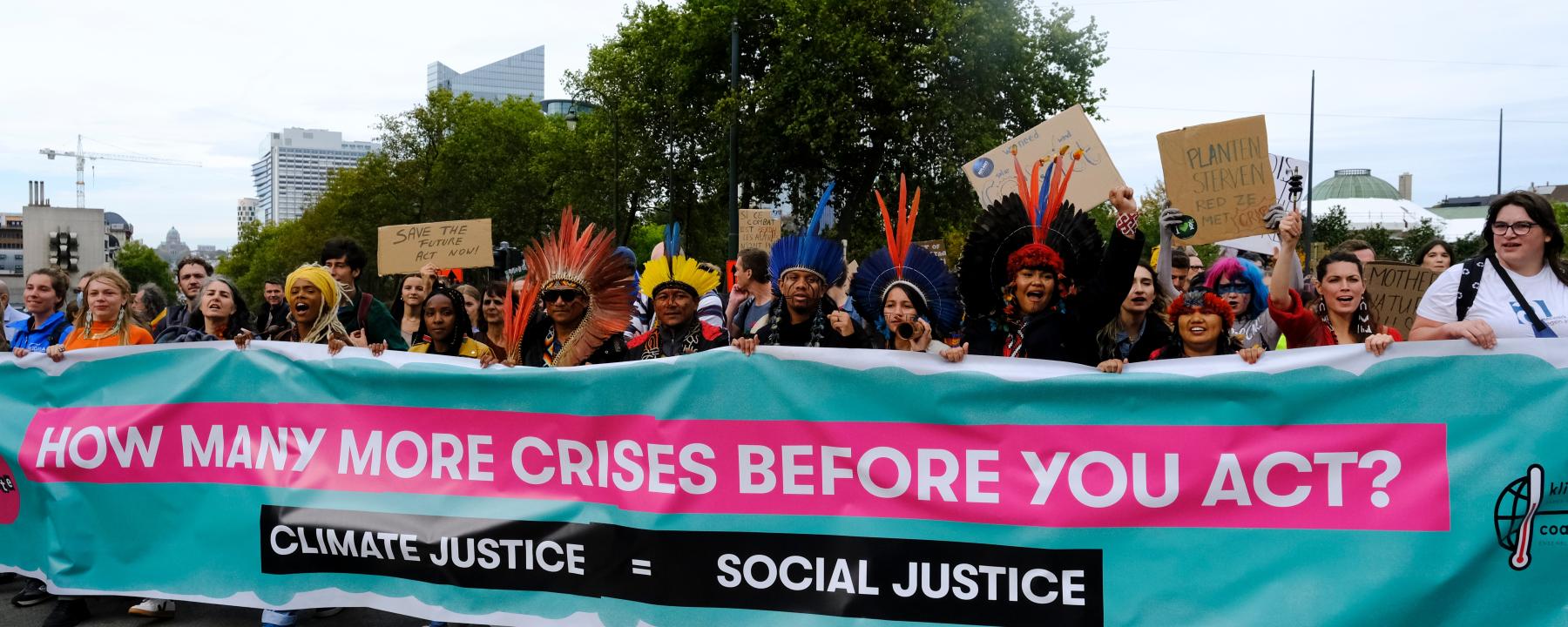
The climate crisis has many dimensions: social, political, economic, environmental, moral, ethical, and ideological. The way out of the crisis must address the root cause: the endless, limitless, mindless accumulation and concentration of capital on a planet with finite resources.Valdrak Jaentschke, head of the Nicaragua delegation to COP28
In turn, climate justice must be multi dimensional recognising that climate justice is an integral part of social, political, environmental, and ethical justice.
In a blaze of triumphant celebrations, the Paris Agreement (COP21) was adopted on 12 December 2015. It entered into force on 4 November 2016.
The overarching goal was to hold ‘the increase in the global average temperature to well below 2°C above pre-industrial levels’ and pursue efforts ‘to limit the temperature increase to 1.5°C above pre-industrial levels.’
However, the Nicaraguan delegation led by the late Dr Paul Oquist, refused to sign it let alone celebrate given the gaping hole between the immensity of the crisis and the lack of ambition of developed countries. According to the calculations of Dr Oquist, actual commitments would at best ‘take the world to more like three degrees over pre-industrial levels.’
Dr Oquist went on to criticise the lack of transparency, and narrowness of scope of a process that failed to acknowledge the facts.
The Agreement was of such limited ambition Dr Oquist argued that it merely tinkered around the edges. He went on to state that it merely rescued the governments of the countries that have caused global warming, ‘passing the cost to those least responsible who will die in the largest numbers unable to make good their losses, much less adapt to a change in climate increasing in intensity as the century wears on.’
In short, rather than solve problems the Agreement postponed them, at best ‘passing a three degree world onto our grandchildren, great grandchildren and great, great grandchildren.’
Fast forward eight years, the crisis has intensified almost to the point of no return across the globe. The demands of UN general secretary Antonio Guterres and millions of others, particularly in the Global South, echoed those of Dr Oquist.
‘End the use of fossil fuels and stop kicking the can down the road,’ urged UN general Antonio Guterres at COP28 in Dubai December 2023.
In line with Dr Oquist’s predictions the International Panel on Climate Change has already stated that even 1.5 degrees above pre-industrialised levels would be unsustainable.
‘Even at this level Small Island States of the Pacific and Caribbean and the lowland areas of Central America would disappear, it’s not a question of if this would happen, it will happen and whole nations will disappear.’ Valdrak Jaentschke
Antonio Guterres went on to state: ‘Every year of insufficient action to keep global warming below 1.5 degrees Celsius drives us closer to the brink, increasing systemic risks and reducing our resilience against climate catastrophe’.
COP28 ‘typifying the real face of an unequal world’
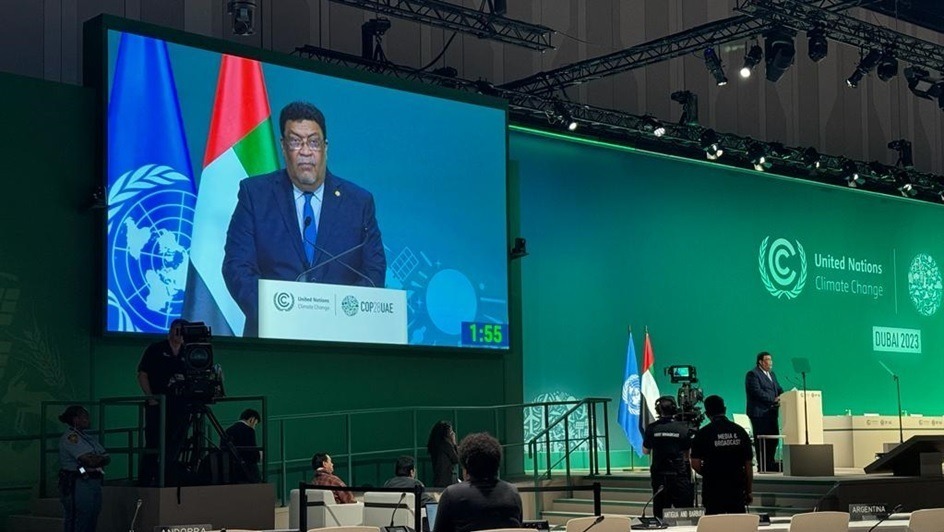
A small Nicaraguan delegation led by Minister Jaentschke were among the nearly 100,000 people who attended COP28 or joined online.
The term COP means Conference of Parties the ‘parties’ being countries. In the case of COP28 197 countries registered to attend: corporate fossil fuel and agribusiness lobbyists were among those embedded in national delegations of countries of the North.
Why? To use their clout to ensure that nothing emerged that had any significant impact on their interests.
In a webinar co-ordinated by the Nicaragua Solidarity Coalition, Valdrak outlined the positions taken at COP28 arguing that the ‘predatory capitalist model of production and consumption is the main reason we are on the brink of catastrophe. The capitalist assumption of limitless growth is at profound odds with the fact that we live on a planet with finite resources.’
Climate Justice = common but differentiated responsibility for cutting carbon emissions
COP28, after more than a decade of lobbying by countries of the Global South, established the principle that all countries are responsible for emissions but those with the highest level of emissions currently and historically have the greatest responsibilities.
COP28 signalled ‘a transition away from fossil fuels, the beginning of the end for the fossil fuels era.’
This was a critical step forward but as the Nicaraguan delegation and other countries of the Global South highlighted, there must be some level of flexibility not for the major polluters but ‘for developing countries that face capacity questions in terms of the speed at which they are able to transition away from fossil fuels’.
‘Developed countries are constantly looking for ways of avoiding responsibility; some examples of this are carbon trading and carbon markets to achieve carbon neutrality: this is a big lie.’
Valdrak went on to state: ‘what we currently have is the dictatorship of capitalist imposition and bullying, greed and belief in their right to control the world.’
Mitigation and adaption: the UN Green Climate Fund (GFC)
Developed countries have, in theory, pledged to provide US$100bn per year to this Fund. In turn, developing countries, can present applications for projects to mitigate and/or adapt to the climate crisis.
However, the amount actually delivered by the UN Green Climate Fund of US$13.5bn to date indicates how irresponsibly inadequate this Fund is in providing resources to enable vulnerable countries to confront ‘humanity’s greater challenge’.
As well as the chasm between the level of the crisis and the level of GFC financing, Valdrak raised concerns about the complexity of the application process making it inaccessible for many countries.
According to the GCF website 243 projects have been approved to date to the value of US$13.5 bn of which Nicaragua has received US$91.2m for three projects.
Climate justice = climate finance for loss and damage
Progress has proceeded at a snail’s pace on the inclusion of the concept of loss and damage, something that vulnerable countries of the Global South have been demanded for decades.
Loss and damage refers to climate finance that acknowledges the impact of irreversible economic and other losses caused by global warming. It includes not only disasters linked to extreme weather, but also slow onset events such as sea level rise, loss of life and livelihoods, migration, biodiversity, and cultural heritage.
However, as with the Climate Green Fund, only a small fraction of the estimated $US400bn needed annually has actually been pledged.
Climate justice = reparations
In addition, many countries of the Global South including Nicaragua, argued not just for financing of immediate loss and damage but also for reparations for climate related impacts of colonialist development, a concept that North America and Europe are at great pains to avoid.
How the climate crisis impacts Nicaragua
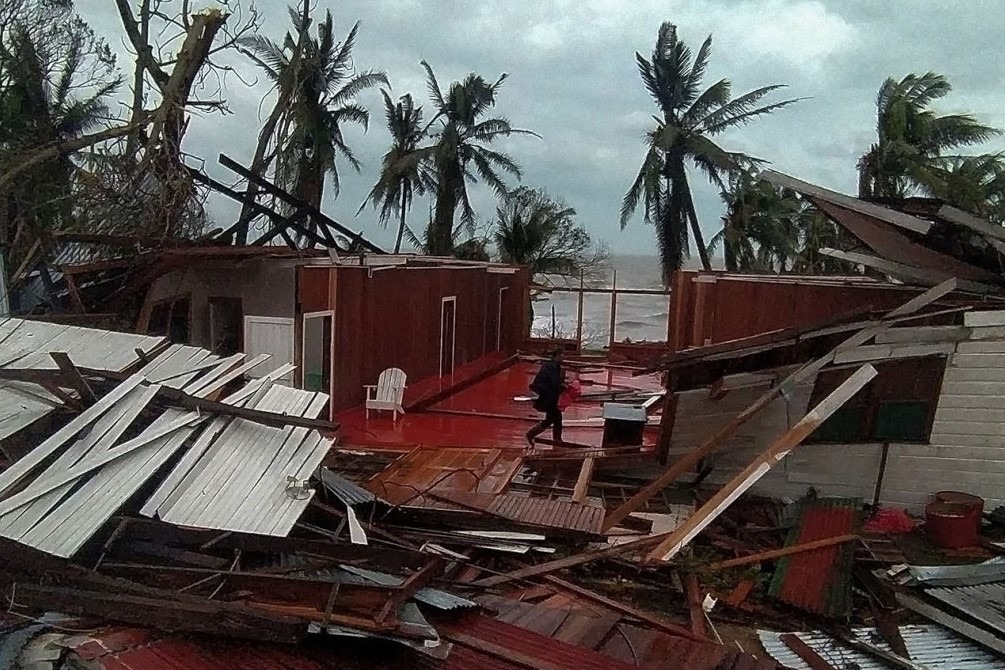
Valdrak explained that Nicaragua, with a population of 6.2 million, is responsible for 0.05% of global emissions. Yet it suffers multiple climate related crises such as extremes of temperature, hurricanes, floods, droughts and erratic seasonal shifts. All of these events take a heavy toll particularly in low lying areas.
The country has to invest US$4bn annually to mitigate/adapt to climate change; this constitutes 8% of GDP. This calculation takes into account road infrastructure, production, environment, health, energy, water, sanitation, telecommunications, and agriculture.
In addition, Nicaragua is situated on a criss cross of earthquake fault lines and a chain of volcanoes.
All of this in a small country has an enormous impact in undermining development. But it’s not just a question of finance needed to rebuild but also the psycho social impact.
What is Nicaragua doing to cut its own carbon emissions?
Valdrak highlighted that everything that the Sandinista government has achieved, how much the country has advanced including on climate justice, is within the framework of independence and self determination and eradicating poverty.
Nicaragua is playing its part in cutting emissions according to its means. An example of this is the transition to renewable energy from 25% to 75% since 2007.This consists of a diverse matrix of solar, geothermal, wind, and biomass.
A message from Nicaragua to campaigners in countries of the North
♦ The debate and pressure needs to accelerate in countries of the North, focusing on transformation rather than tinkering around the edges.
♦ Climate justice is a moral, ideological and the ethical question that must take place in the wider context of social justice.
♦ Building global networks, coalitions, and alliances, is essential to raising awareness of what is happening, who is responsible, and actions to take.
♦ Civil society organisations in developed countries are key. As the UN general secretary Guterres has stated rhetoric and actions must address the causes and must be about transformation – the age of tinkering and kicking the can down the road for future generations is over.
In short, ending the myth of eternalism on a planet with limited resources.
